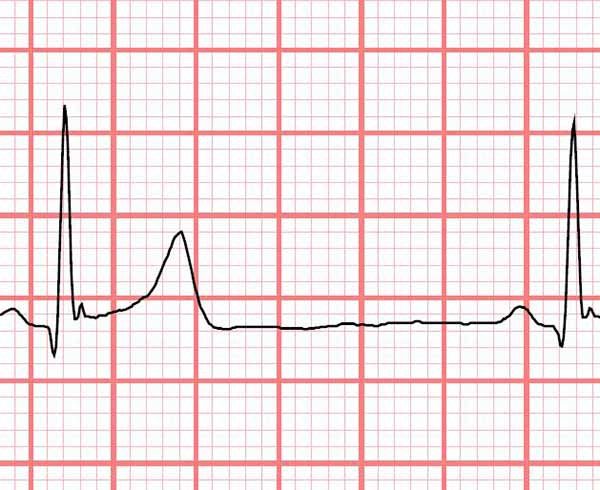An ECG can help detect:
- Arrhythmias – where the heart beats too slowly, too quickly, or irregularly
- Coronary heart disease – where the heart's blood supply is blocked or interrupted by a build-up of fatty substances
- Heart attacks – where the supply of blood to the heart is suddenly blocked
- Cardiomyopathy – where the heart walls become thickened or enlarged
Preparing for your test
Remember to bring:
- Photo ID
- Hospital card
You may take all your medications as usual and eat and drink as normal. If you would like to bring someone with you, you’re welcome to bring a friend or relative. We ask that you wear comfortable, loose-fitting clothing. The test will take between 10-20 minutes.
At the appointment
An ECG is non-invasive and involves no pain or discomfort. The test involves attaching a number of small, sticky sensors called electrodes to your arms, legs and chest. These are connected by wires to an ECG recording machine.
Before the electrodes are attached, you'll usually need to remove your upper clothing, and sometimes your chest may need to be shaved or cleaned. Once the electrodes are in place, you will be offered a gown to cover yourself.
The test will be interpreted by one of the Healthy Heart Institute cardiologists, and sent to your doctor.
